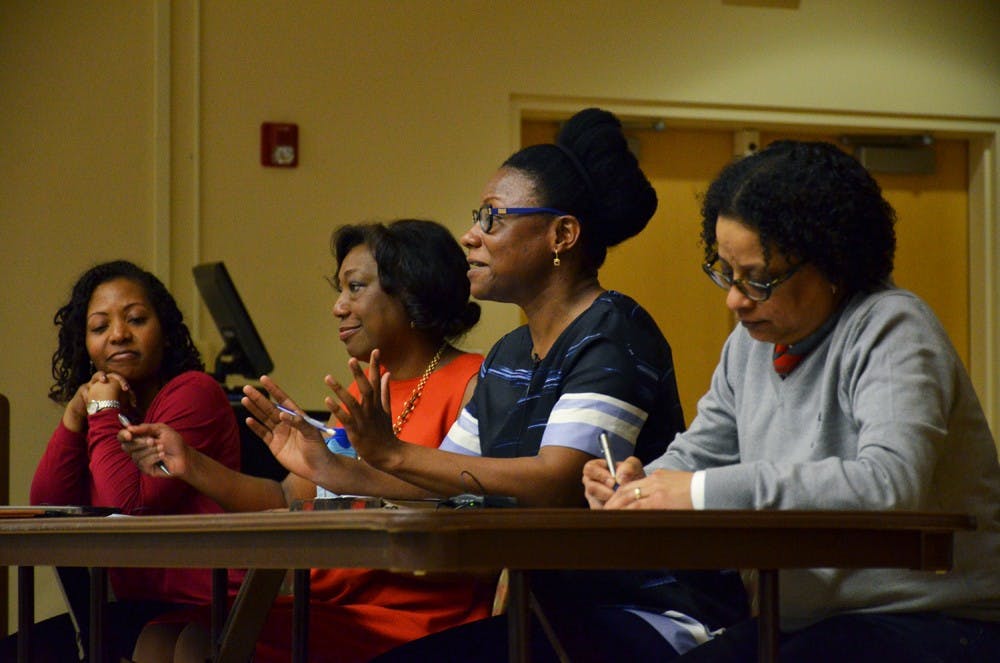Holland herself contemplated leaving the University nearly two years ago.
“What does it mean that two of the three people who were very visible in the Roadmap for Racial Equity have left the University?”
‘Just exhausted’
When Annette Rodríguez was in discussions with the University of Texas at Austin this year, she realized they had an interest in her work that she didn’t feel at UNC.
Rodríguez joined UNC in 2018 as a recipient of the Carolina Postdoctoral Fellowship for Faculty Diversity. She said she chose to come to UNC to have time for her own research and for the opportunity to become a tenure track faculty member.
Rodríguez, who was an assistant professor of American Studies at UNC, said she’d been asked about other things — such as teaching Latinx curriculum and advising on committees about race, queerness or hate crimes.
“But I’d literally not had discussions about my actual research, and I didn’t know that really,” she said. “I was also just exhausted.”
When it came time to retain her from being recruited away, Rodríguez said, it was Holland and Lowery who were working to put together an offer, rather than University administrators. To Rodríguez, this retention process was another example of faculty of color at UNC being overburdened.
“I realized that the institution had replicated the problem, which is that a Black woman and an indigenous woman were working very hard to keep a Latinx woman,” she said.
Rodríguez is an incoming assistant professor at UT Austin's department of history.
To get the day's news and headlines in your inbox each morning, sign up for our email newsletters.
In a written statement, UNC Media Relations noted the Carolina Postdoctoral Program for Faculty Diversity and the Build Our Community Together strategic initiative as two of the University’s efforts to recruit and retain diverse faculty. They also noted the Targeting Equity in Access to Mentoring (TEAM) ADVANCE program and the Valuing Inclusion To Attain Excellence (VITAE) initiative, which supports recruitment of faculty members from underrepresented groups for tenure track or tenured appointments.
Of UNC's 4,085 faculty members in fall 2020, 226 were Black or African American, 460 were Asian and 201 were Hispanic of any race, according to data from the UNC Office of Institutional Research & Assessment. About 73 percent — 2,997 faculty members — were white.
OIRA defined “faculty” as full-time permanent employees with a primary appointment as faculty and a valid academic rank and tenure status of tenured, tenure track or fixed term in the HR information system.
‘If you ignore a problem, it doesn’t go away’
Associate professor Trevy McDonald is the only Black woman in the Hussman School of Journalism and Media to hold tenure. She was also the first — in 2018.
McDonald said there were no Black women faculty when she was a doctoral student at the journalism school in the 1990s.
“I wanted to have the opportunity one day to give back,” McDonald said. “And that dream was realized 15 years later, when I became a tenure track faculty member at the journalism school.”
McDonald also serves as the director of diversity, equity and inclusion for the journalism school, a position that began in the summer of 2020. As the news about Hannah-Jones’ tenure case unfolded, McDonald could see that it was “very clearly an equity issue.”
She said it was reflective of the same equity issues the University has had for over 50 years.
And to address those issues, McDonald said, the University needs to be intentional with its DEI efforts.
“Being intentional requires that we listen, it requires that we address these issues head-on because that's the only way we're going to grow,” she said. “If you ignore a problem, it doesn't go away. It gets bigger.”
The number of faculty of color who are considering leaving is growing. In a June 16 virtual Carolina Black Caucus meeting, 70 percent of attendees answered a Zoom poll saying they were considering leaving UNC. More than 60 percent were actively seeking other jobs. The organization is composed of Black faculty, staff, graduate and professional students and postdocs.
Chancellor Kevin Guskiewicz subsequently met with leaders of the Carolina Black Caucus and Student Government to address their concerns.
“It has always been my goal to build a community where everyone truly knows they belong and are valued for their own unique perspectives and experiences,” Guskiewicz said in a written statement to The Daily Tar Heel. “I am deeply concerned that some members of the Carolina Black community do not feel they can thrive in this environment.”
Patricia Harris, vice chairperson of the Carolina Black Caucus, said UNC leadership needs to show up for the Black community because what happened with Nikole Hannah-Jones’ fight for tenure is not an isolated incident.
“We constantly see the goalpost that keeps moving when it comes to how Black people find success at PWIs or historically white institutions — places like Carolina,” Harris said.
Even if the Board of Trustees votes to approve Hannah-Jones’ tenure application on Wednesday, it won’t erase long-standing issues that have plagued the University.
For Harris, Holland and Rodríguez, as for many faculty of color, Hannah-Jones' situation was not a surprise.
But it was a disappointment. It was disheartening. It was a sign that there’s more work to be done.
“I don’t think this is what BIPOC faculty feel, but I think too many faculty, maybe, on this campus, feel that if we can turn around Nikole Hannah-Jones’ tenure, everything will be righted at UNC,” Holland said. “This is a fiction.”
@praveenavsoma
university@dailytarheel.com




